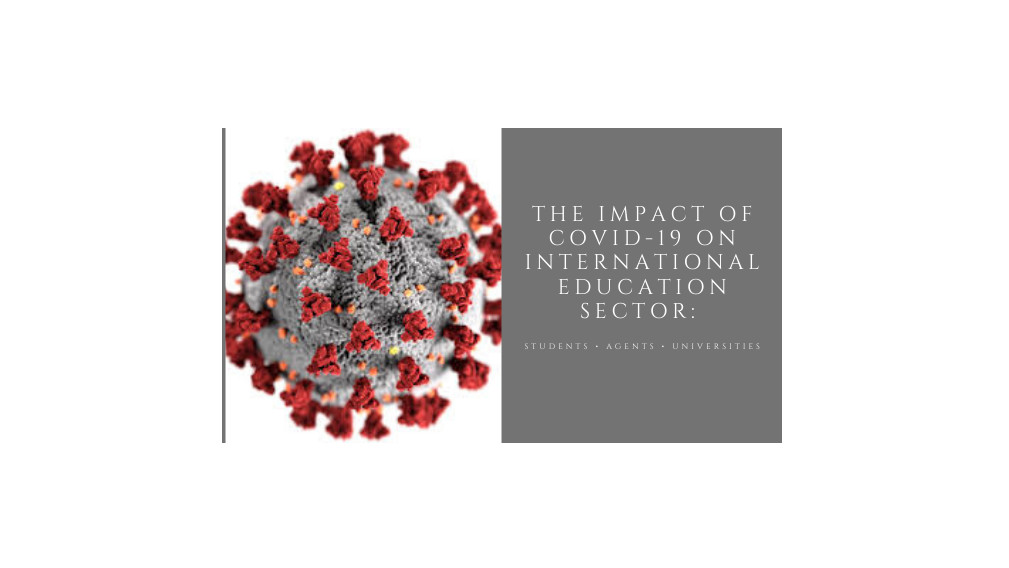
On the 20th of March, academic institutions all across the UK were shut down following the COVID-19 crises, which has created a number of issues for higher education providers in the country.
One of the key concerns of UK education providers is the projected percentage drop in income from next academic year because of a decline in international student fees and future uncertainty in terms of international student recruitment.
Between 2018 and 2019, there were nearly half a million international students studying in UK universities – that’s 20% of all students. During this time, total income flowing in from international student fees was £7 billion. This equalled 17.3% of all income – which is actually higher than the total income from contracts and research grants.
An Institute for Fiscal Studies report published recently claimed that if international students did not enrol next academic year, the higher education sector may lose approximately 10% income, assuming that domestic admissions remain unchanged.
What are the financial risks faced by the UK higher education sector post-COVID-19?
UK universities generate over £95 billion for the country’s economy and more than 940,000 full-time jobs as a result. In fact, academic institutions across all four nations of the UK generate a number of benefits:
Development of highly skilled professionals across all of UK, driving not only business productivity but also essential and qualified workers for the public service sector such as NHS and schools.
High-impact and cutting-edge research which addresses both local and global challenges (this includes those posed by COVID-19).
Driving economic growth and betterment through job creation, innovation and research; attracting inward investment and providing a ‘multiplier’ effect on the local economies.
Strengthening the country’s position in the world through international partnerships, attracting some of the world’s best talent and contributing in export earnings to the tune of £13.1 billion.
Better civic leadership and impact by supporting local businesses and communities.
The higher education sector’s ability to deliver the above benefits and more is currently at risk because of the financial implications of COVID-19. For instance, universities will require government investment to protect student interests, maintain research capacity, prevent institutional failure and ensure that they continue to play a key role in strengthening the UK’s economy and positively contribute towards a faster social recovery.
The COVID-19 pandemic has suspended ‘business as usual’ for higher education providers across the nation. Campuses have resorted to remote learning almost immediately and many academic institutions are now struggling to cope with grave financial challenges – amidst a very real possibility of a domestic and global recession.
The higher education sector here is playing a key role in the fight against Coronavirus – supporting the NHS and local communities to develop a vaccine – as well as providing thousands of medical student volunteers and supplying specialist facilities.
Universities UK has called for big bailouts to help prevent higher education institutions from failing and to maintain the system. The package they have proposed will help support academic institutions across all four nations in the UK – helping them take on some serious financial challenges which have been posed by COVID-19. The bailout package would also help them maintain their key role in recovering the economy and getting the country’s academic sector back on track.
Let’s take a look at some of the current financial risks and impacts:
Immediate financial impacts for the academic year 2019-2020 resulted in a loss of income equivalent to c£790 million across the UK
Major financial risks in the academic year 2020-21 include a dramatic fall in international student recruitment for undergraduate courses and postgraduate courses – and a rise in undergraduate home student deferrals.
A 100% decline in fee from international students could lead to a £6.9 billion loss of income in the UK’s higher education sector.
How can the UK higher education sector achieve stability post-COVID-19?
The following package, as outlined by Universities UK, discusses some of the measures needed to stabilise the university sector in the nation, prevent serious financial failures and help ensure that all higher education academic institutions can continue and maximise their contribution toward the economy to help in post-coronavirus recovery.
Minimize impact on the capacity, strength and quality of research base
Increasing QR funding by 100% for 2020-21 will ensure that UK academic institutions can maintain research excellence and training capacity of higher education students and support the pipeline into research from postgraduate courses.
Increasing innovative funding will assist in rebalancing the economy and support local re-skilling as well as growth.
Provide stability to UK students entering the 2020-21 academic year
The introduction of a one-year stability measure will ensure fair student treatment and protect them from uncertainty in the admissions process.
This measure would further ensure that all places in academic institutions that were available before Coronavirus remain available, which in turn will help student choice and aspiration.
Address losses in cash flow and income
All higher education institutions in the UK to be eligible for the Coronavirus Job Retention Scheme, the Coronavirus Business Interruption Scheme and the COVID-19 Corporate Financing Facility.
Offer bridging loans and flexibility in lending terms to academic institutions that are suffering grave income losses – who also require temporary support in order to maintain cashflow or otherwise need support until they have recovered the desired number of students in order to have a stable income.
Re-arrange SLC tuition fee payments to academic institutions in 2020-21, targeting cashflow to the first term as it may be highly needed at that time.
Minimize impact on international student recruitment
By introducing more flexibility in the visa system, international students planning on starting courses in autumn 2020 will feel more secure and better supported. In addition, more flexibility on visa applications and English language requirements is needed due to disruption in examinations and testing centres.
By ensuring that the UK is well-positioned for economic recovery, it can be promoted as a study destination of choice.
Do you think some of the above measures proposed by Universities UK will help higher education providers deal with cashflow issues and other challenges? Leave your thoughts below.






